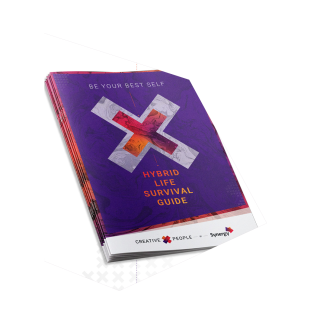
Reframing resilience - how leaders can support their teams through change

Recently I was delighted to speak at a panel event tackling the subject of resilience. Organised by MIEACT (Mental Illness Education ACT), the conversation tested some common assumptions and truly unpicked the concept of resilience – for all its strengths and its weaknesses.
Since the discussion I’ve found myself reflecting further on the topic, and rethinking what resilience really means in the workplace at every level.
Resilience is something that is often sought after – particularly in the world of consulting. You need to be ready to face new challenges, work consistently and come back stronger when times are tough. But this is where resilience can get problematic. It’s one thing to ‘bounce back’ - but what does that really mean, and, as the panel asked: ‘when does bouncing back actually lead to burning out?’
As the leader of a large and dynamic organisation, it’s my firm belief that truly demonstrating resilience is not showing a dogged dedication to ‘getting the job done no matter what the cost’. Resilience, in fact, is accepting difficulties or changes, allowing yourself to feel the challenge, and emerging from tough times with a better understanding of yourself, your skills and your areas for development.
Demanding that our teams pick themselves up and dust themselves off may seem like the best way to keep business rolling, but not allowing sufficient time to grow and change is often counter to what our people really need. Here are a few ways I like to reframe resilience in the workplace.
Resilience means teamwork
Resilience is a special kind of strength that I believe is most easily leveraged by a team or a group. While it’s easy to feel your resilience is being tested at a personal or individual level, it is important to draw on those around you and to support them when they need it most. One of my favourite examples is a study by two researchers in Virginia that found that when an individual looks at a hill they need to climb, their brain perceives it as being 10-20% higher when the person is alone, as opposed to when they look at the same hill with another person. At Synergy Group, we act as one, by structuring teams with people who think differently, challenge assumptions and support one another along the way.
Resilience means flexibility
I think the pandemic has really made this abundantly clear to leaders. If we want the best from our teams in a highly turbulent world, we need to flex with them to ensure they are given the space and time to perform their roles effectively. A rigid mindset will only lead to feelings of failure and a deterioration in wellbeing for the individual, and in performance for the organisation. As leaders, we must take it upon ourselves to build more resilient teams, and this means flexibility, empathy and demonstrated support – this might be big things like agreeing to a remote working model, or seemingly smaller acts – like allowing 15 minutes between meetings for people to decompress and prepare.
True resilience leads to change
To be truly resilient, we must accept that tough situations will change us. The temptation for many is to try to ‘go back to where we were before,’ but the truth is that this might not be possible. Resilience is about recognising that fact, learning what we can and confidently choosing to grow from our experience. Many organisations that have weathered the pandemic, for example, are now in a different place to where they were – restaurants offer new delivery services they didn’t have before, offices are embracing hybrid or remote working and teams are more comfortable to pivot to new, urgent tasks having had plenty of practice.
Resilience is an important characteristic for our people at Synergy Group, but only if it is properly understood and supported at every level.
